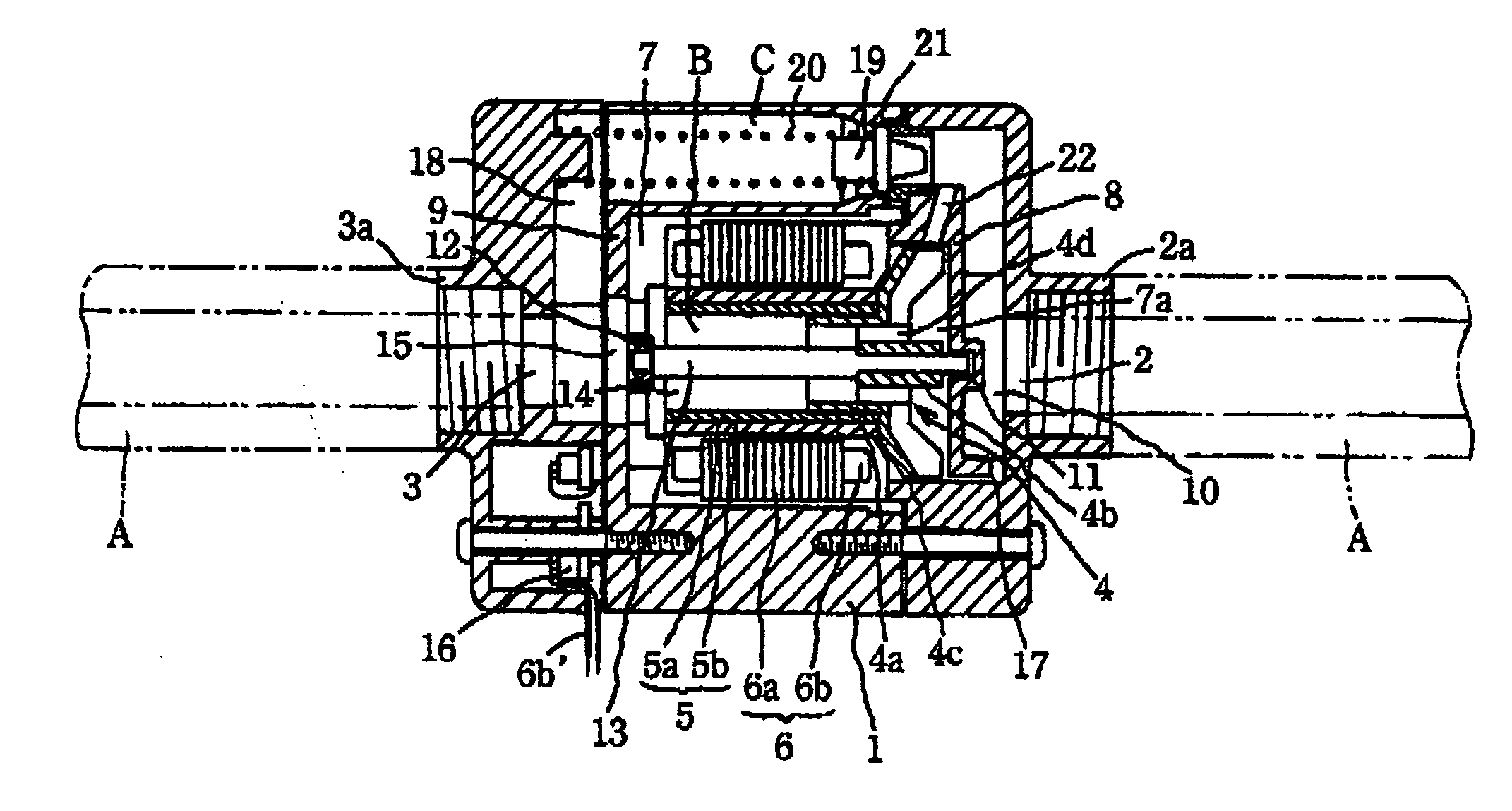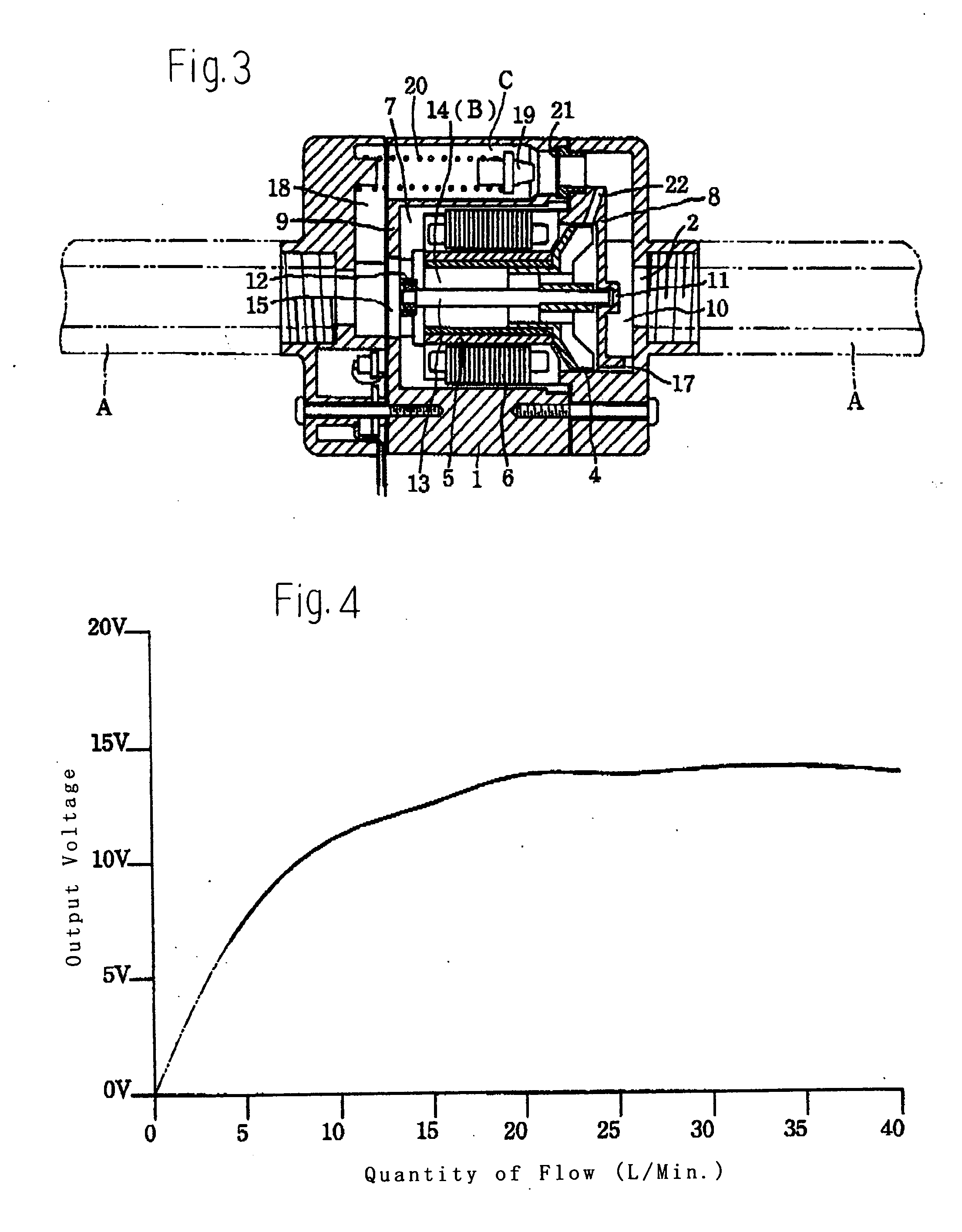Small-sized hydroelectric generator
a hydroelectric generator and small technology, applied in the direction of liquid fuel engines, renewable energy generation, greenhouse gas reduction, etc., can solve the problems of impeller and shaft bearing which supports the medial axis of rotation of the rotator, and achieve the effect of constant and stable output voltag
- Summary
- Abstract
- Description
- Claims
- Application Information
AI Technical Summary
Benefits of technology
Problems solved by technology
Method used
Image
Examples
Embodiment Construction
[0020] Now, the specific embodiment of the invention is explained hereinafter based on the drawings. A casing 1, being a main body of the small-sized hydroelectric generator, is a hollow casing. An inflow port 2 and an outflow port 3 for tap water are formed in a center of one end and in a center of the other end of the casing 1, respectively, and a rotator 5 rotating integrally with an impeller 4, and a stator 6 generating electricity by the rotation of the rotator 5, are arranged in the center part of the inside of the casing 1.
[0021] The inflow port 2 and the outflow port 3 are formed to have inner diameters substantially same as an inner diameter of a water pipe A. Short cylindrical connection opening parts 2a, 3a, having diameters larger than those of the inflow port 2 and the outflow port 3, respectively, are mounted to project from circumferences of the inflow port 2 and the outflow port 3, respectively. By screwing an outer peripheral surface of the end parts of the water p...
PUM
 Login to View More
Login to View More Abstract
Description
Claims
Application Information
 Login to View More
Login to View More - R&D
- Intellectual Property
- Life Sciences
- Materials
- Tech Scout
- Unparalleled Data Quality
- Higher Quality Content
- 60% Fewer Hallucinations
Browse by: Latest US Patents, China's latest patents, Technical Efficacy Thesaurus, Application Domain, Technology Topic, Popular Technical Reports.
© 2025 PatSnap. All rights reserved.Legal|Privacy policy|Modern Slavery Act Transparency Statement|Sitemap|About US| Contact US: help@patsnap.com



